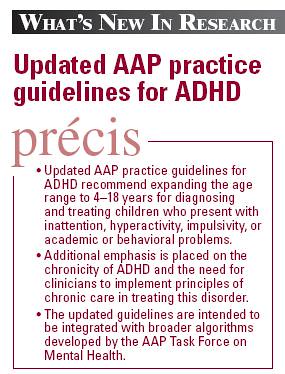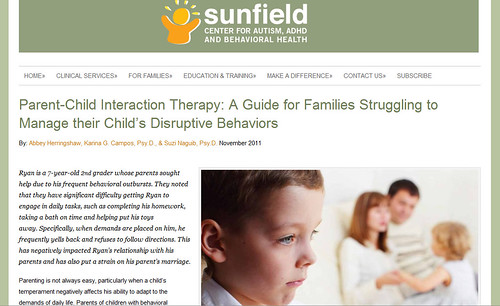The minimum age for treating Attention Deficit Hyperactivity Disorder in children has been lowered to 4 years of age by the American Academy of Pediatrics, according to this item in the current issue of the Brown University Child & Adolescent Psychopharmacological Letter. Thanks Kellye, ARNP, for bringing this to our attention.
+
+
At what age to use particular interventions with children comes up frequently in consultations with parents. Consider the question of when to use time out. Therapists drawing on any of several discipline programs will often use two years of age as the earliest time out can be used. Yet some care providers consider that as highly inappropriate for children that young (or for children any age). Of course, there can be an enormous difference developmentally between a child at just two to a few months later when closer to three. Two children the same age can vary tremendously in terms of their development and readiness for certain experiences. There is always a judgement call to make and still controversy to be found.
+
+
To have pediatricians operating with a lower minimum age in mind for treating children with medication and hearing about it from parents will take some getting used to for some therapists. That controversy, too, is hardly resolved. -gw



